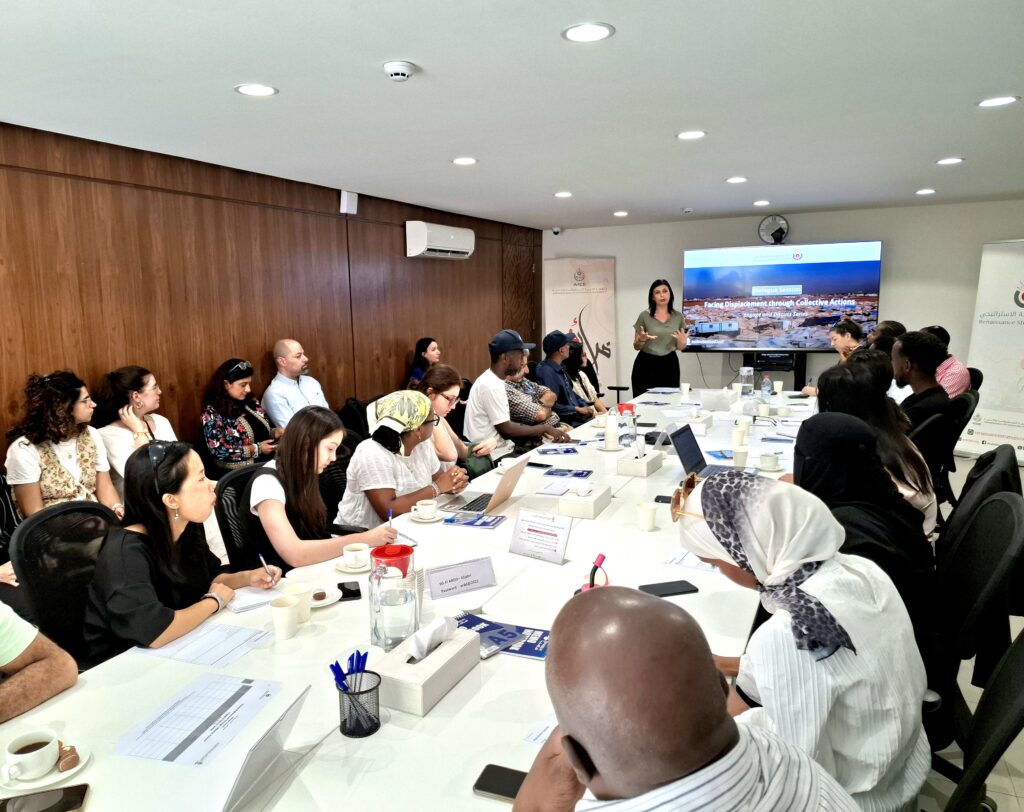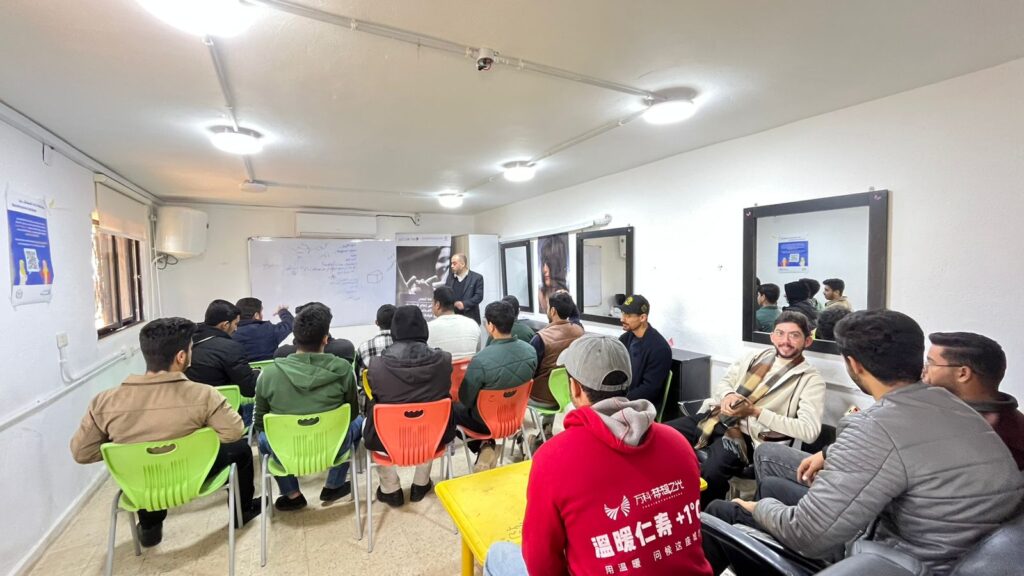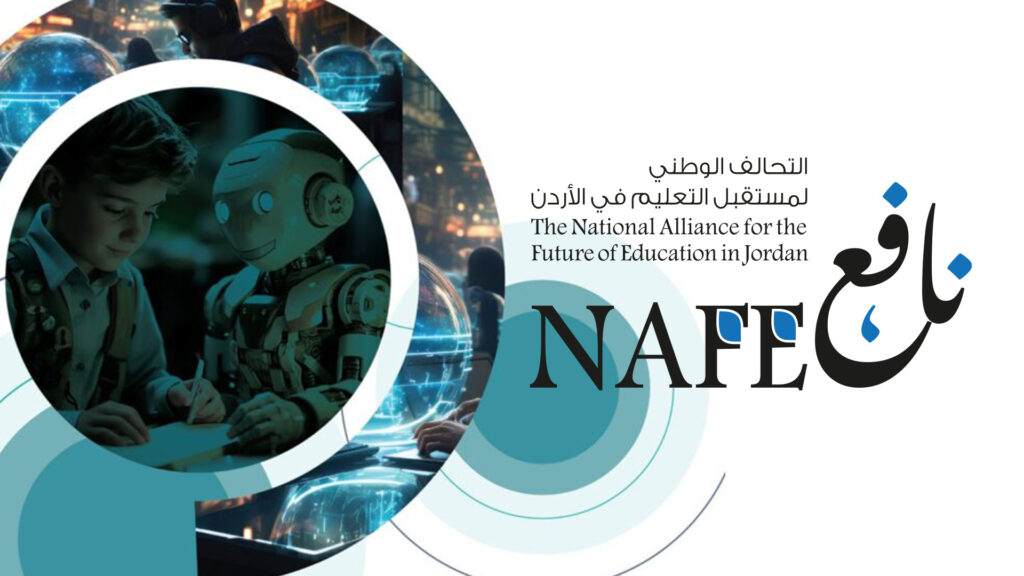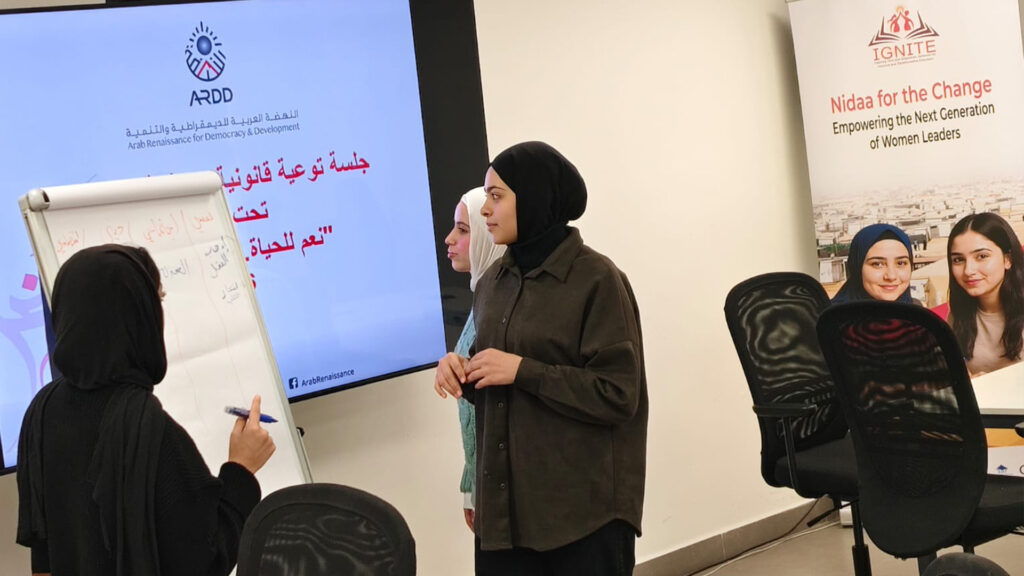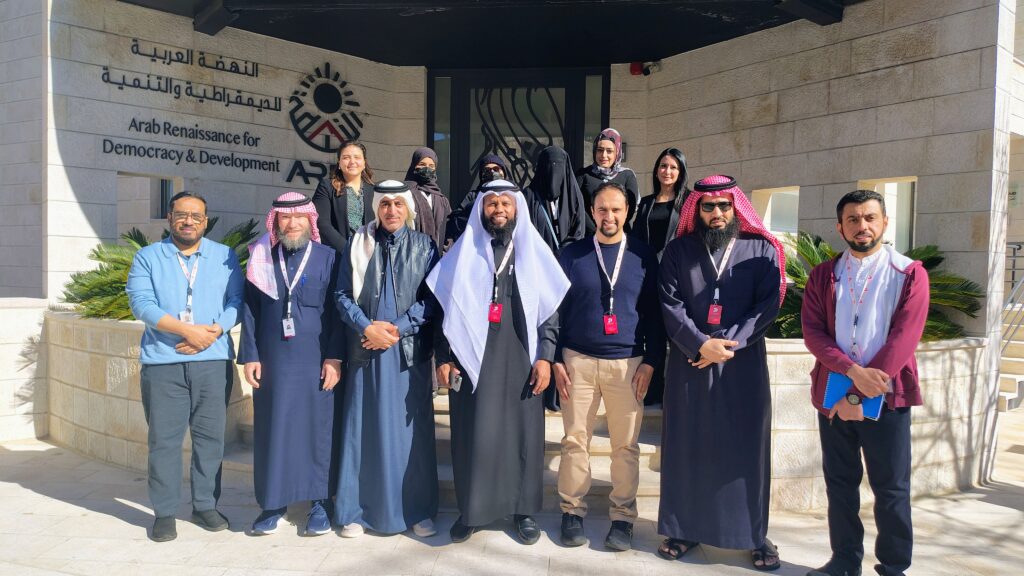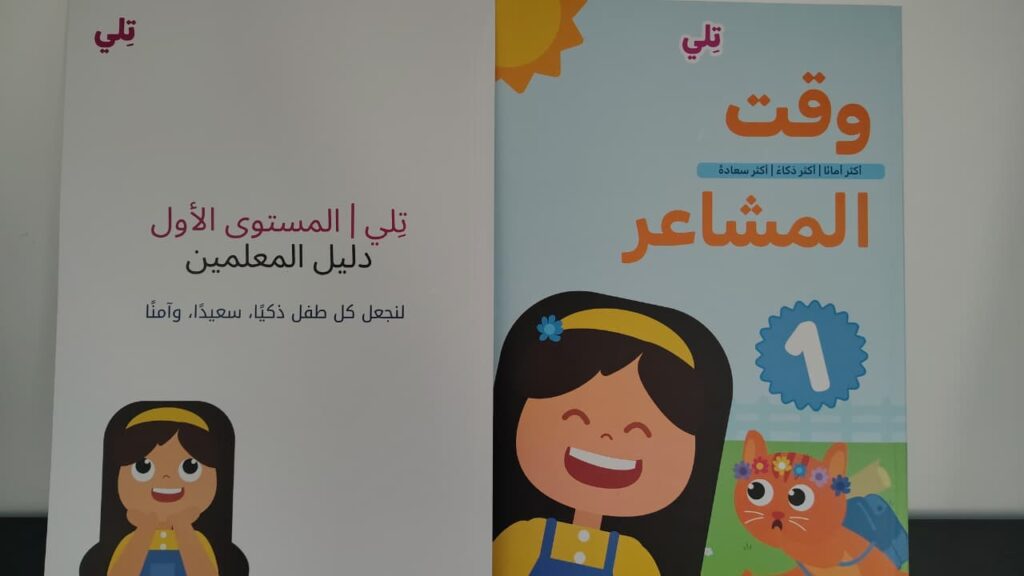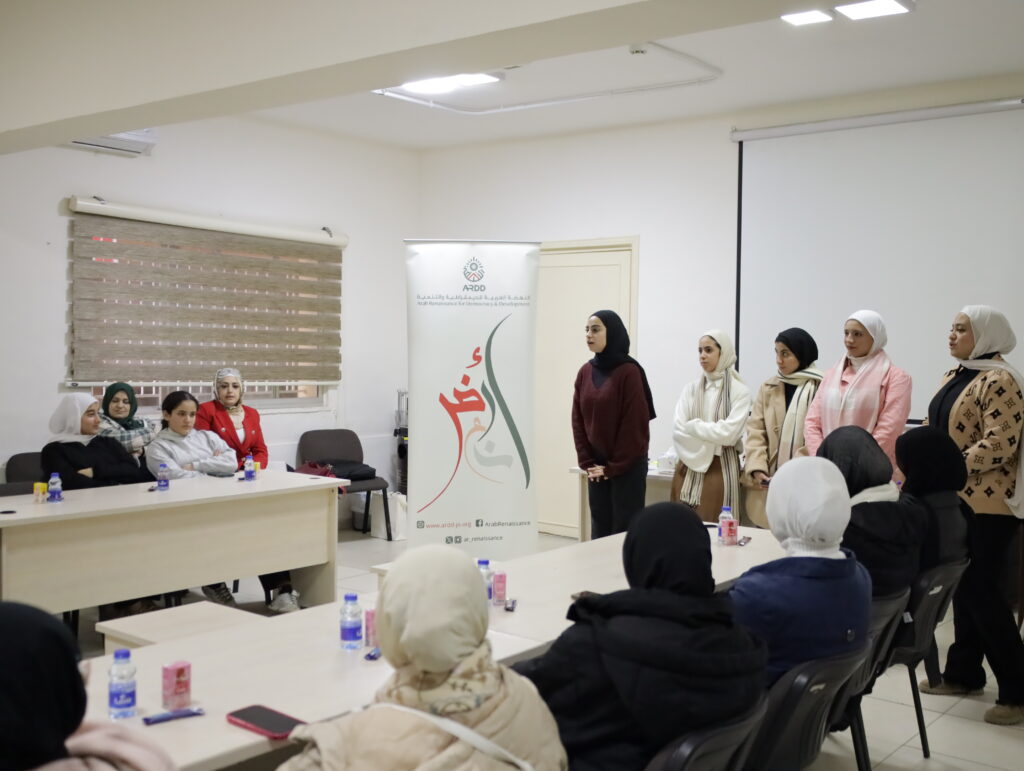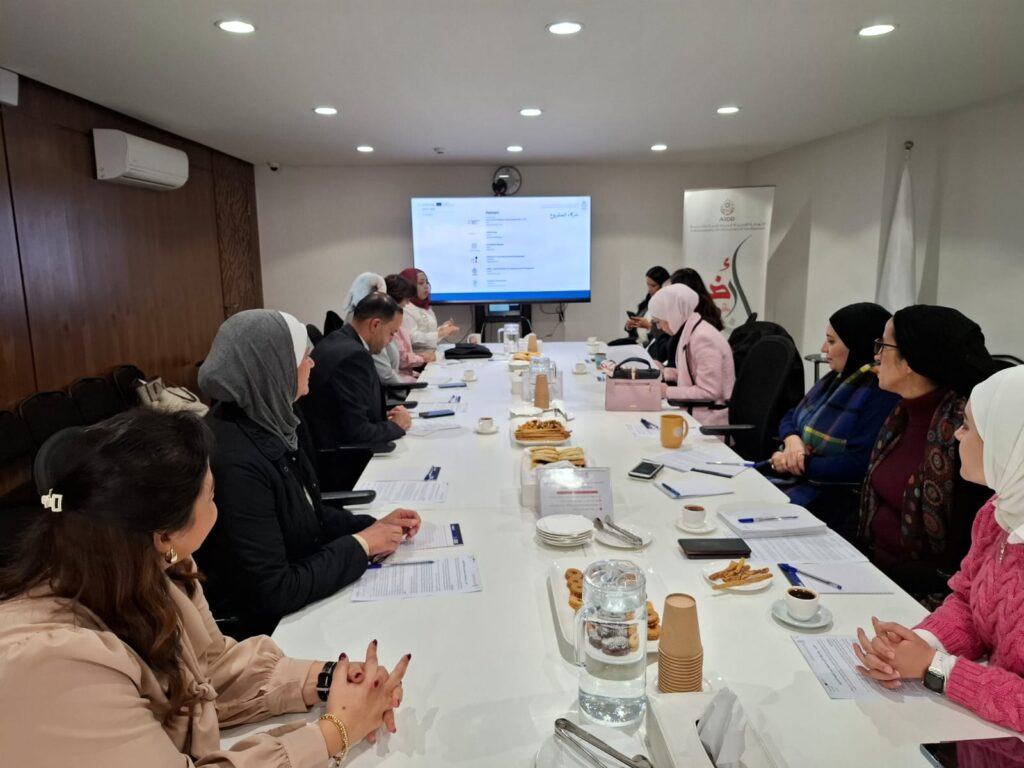8 July 2025 – As part of our series “Engage & Discuss,” The Renaissance Strategic Center (RSC) hosted a new engaging in-person event on Facing Displacement through Collective Actions.
Inspired by this year’s World Refugee Day theme – Community as a Superpower – this event brought together partner organizations in a dynamic discussion on the crucial role that communities play in supporting vulnerable populations, including refugees and internally displaced persons, in their pursuit of their rights and dignity. Acting collectively as a community lead to meaningful change at a local, national and regional level.
The session, introduced by the RSC Coordinator Mariam Abu Samra, featured guest speakers such as: Diana Rabie, Country Director at the Jesuit Refugee Service (JRS); Qaasim Ali, Community Programs Officer Refugee Advocate and Youth Empowerment Leader at Collateral Repair Project (CRP); Ruba Hattar, and Partnerships Manager at Collateral Repair Project (CRP); Mubarak “Ricky” Adam, Educational Initiative Liaison at Sawiyen; Hassan Mohamud, English Program Co-Director at Sawiyen.
In a time marked by major political instability, Mariam Abu Samra opened the discussion with a compelling argument on the vital role of local organizations in supporting refugees in Jordan. She emphasized that this moment in history calls for urgent attention to the needs of those displaced, particularly within the context of marginalized refugee communities.
Diana Rabie from JRS elaborated on the importance of prioritizing community needs, especially in Amman, where marginalized refugee groups often struggle for recognition and support. She insisted that understanding these needs is essential, and it must begin by giving voice to the community itself. CBOs and RLOs must have access to adequate support, funding, and trust to make a meaningful impact within their communities and provide integrated, grassroots-driven responses.
Ruba Hattar from CRP highlighted a sobering reality: displaced people are frequently perceived as collateral damage. She pointed out that laws hinder community-based (CBOs) and refugee-led organizations (RLOs) from functioning, limiting their ability to engage with marginalized members effectively on a broader scale. Qaasim Ali (CRP) contributed to the discussion by asserting that listening to the community is crucial to understanding their needs and empowering them with agency. He remarked on the importance of achieving social cohesion as a prerequisite for genuine reconciliation.
Hassan Mohamud (Sawiyen)’s testimony highlighted the pressing need to understand the true needs of the local communities and emphasized the importance of creating supportive spaces for marginalized refugees. The most marginalized groups frequently come from Sudan, Somalia, and other African countries; they are often underreported. Sawiyen’s initiative to enhance educational opportunities for Sudanese refugee children has been particularly acknowledged as a big effort to give chance of normalcy and future opportunities to a neglected generation. Mubarak ‘Ricky’ Adam further emphasized that acting collectively, in a unified effort among local organizations, is the most effective strategy for tackling these challenges. Hassan Mahmoud provocatively questioned the concept of “decolonizing our minds,” asking what it truly means and how it can be implemented in practice.
However, CBOs and RLOs face significant hurdles. Restrictive policies, combined with limited funds and attention from international community, have long shaped the narrative of aid, by reinforcing contradictions surrounding refugees.
The discussion concluded with a renewed commitment to transforming the prevailing narrative that often depicts refugees as passive recipients of aid, rather than as active agents of change. This transformation can be realized through a vision of solidarity framed in a decolonial approach to humanitarian operations.
This locally-driven approach advocates for solutions that are deeply rooted in Arab history and culture, while also acknowledging the diversity and intersectionality of refugees’ experiences.
This is also the time to foster ongoing dialogue among local organizations, which are increasingly called to collaborate as a collective rather than compete individually.
Upcoming sessions will continue to explore the multifaceted reality of migrants and refugees, their challenges and opportunities in the local context, and the future of the humanitarian sector across the Arab region.

